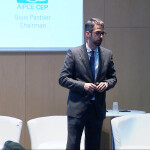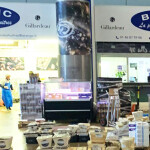Last week, I published a column critiquing global environmental activist group Oceana’s report on salmon mislabeling. I argued not with the data, but with certain comments in the report about farmed salmon that I thought were inaccurate and irrelevant.
Despite that quibble with the group’s presentation, I didn’t then nor do I now question Oceana’s motives or the need to keep the spotlight on the ongoing problem of seafood fraud, and when Oceana couples this motive with the right methods, the results are brilliant.
We saw an example of this recently in Europe with a new study from Oceana, released about a month after the salmon report came out. Like various studies the group has conducted in the United States over the past few years, Oceana took 280 samples of seafood from restaurants and cafeterias and sent them to a laboratory for DNA testing.
The results: On average, 30 percent of the samples did not match their labels, which usually claimed the samples in question were a pricier variety – inexpensive pangasius, for example, was sold on menus as cod and sole at a substantial markup. What people thought was bluefin tuna was usually – 95 percent of the time, according to the study – cheaper variations such as bigeye or yellowfin.
Most interesting of all about the report, however, was the geographical area the samples came from. All 280 samples came from locations in Brussels, the heart of the EU and the home offices of the European Commission, which is tasked in part with monitoring and preventing problems such as seafood fraud.
But in the cafeterias for both the European Parliament and the commission, researchers found no less than 38 percent of samples taken were mislabeled. That’s a pretty significant number, and Oceana’s point here almost goes without saying – how good a job is the commission doing to prevent this problem if it can’t even keep mislabeled seafood out of its own canteen?
To be fair, it wouldn’t surprise me to see similar results if Oceana conducted similar studies in other seats of power – Washington, London, Ottawa – but if this is a prelude to more studies being conducted in the EU – and I, for one, hope it is – then there is no better place to start than in Brussels.
This is an example of Oceana coupling its laudable motives with the right methods – while the commission and the EU are doubtless already working on the problem of seafood mislabeling, the facts Oceana has unearthed here serve as the strongest reminder possible that seafood fraud is a global problem.





